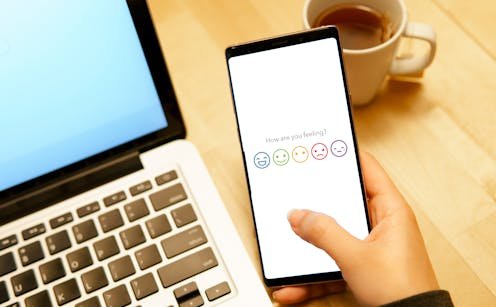This can leave potential users in a situation where they don’t know what they’re getting and can’t access real, evidence-based care.
Effective interventions must always be evidence-based, but they also require users to intervene over a period of time. Apps are easy to download, but they’re also easy to ignore. In trials using app-based interventions, there are many examples where participants download the app but never actually open it, or engagement drops off rapidly after a few sessions.
It’s clear that these apps aren’t just a passing fad. When the National Institute for Care Excellence (Nice) decided that he would approve eight online interventions in March 2023, I (cautiously) welcomed the idea. Digital therapy has the potential to provide additional support to people in need and create a bridge between treatment sessions.
Importantly, these eight apps are scientifically evaluated to see how and where they can be effective in the real world, laying the foundation for the rest of the market to follow.
Four principles for mental health apps
Above all, people need to know what they are getting, and we need more transparency from providers. This is likely to increase their market share, which is exactly to their benefit.
In 2019, Stephen Schuler and I established four principles that all mental health apps should work towards to provide the most transparent service possible to their users. What personal information is collected and how is it used? Was the target user involved in the design of the app? How much should I use and is it safe? Are there any tangible benefits to using it?
My view in 2019 was that formal regulation is not necessarily necessary. People who make false claims on the app can be reported to the Advertising Standards Authority, and while those offering real therapy already operate within a regulated market, it’s not suitable for people seeking therapy. It’s always worth reminding yourself to be careful and find a therapist that’s right for you.
My views on regulation haven’t changed, but that doesn’t mean they don’t need to change. App stores like Google Play and Apple’s App Store are established as havens for libertarians, but there are some rules they must adopt regarding how they market their health apps.
By tightening what is considered a “health” app and setting clear rules like the ones I’ve listed, consumers of mental health apps can ensure that the apps they’re downloading have the power to help them. This should give you even more confidence. Basically, consumers should be able to choose a mental health app as easily as I choose a cereal.
This article is republished from The Conversation under a Creative Commons license. Read the original article.


til.wykes@kcl.ac.uk received a government research grant to investigate the benefits of digital therapeutics


